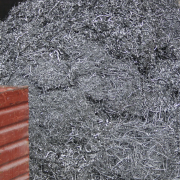Gulf Countries: Economic Growth in 2019
The economic prospects for the six countries in the Gulf Cooperation Council (GCC) – Bahrain, Kuwait, Oman, Qatar, Saudi Arabia and the United Arab Emirates – look good.
According to the latest World Economic Outlook projections of the International Monetary Fund (IMF) from January, the countries of the Middle East and North Africa, as well as Afghanistan and Pakistan, will enjoy economic growth of 2.4 percent in 2019 and 3.0 percent in 2020. The economic prospects of Saudi Arabia were assessed at 1.8 percent this year and 2.1 percent in 2020. The Institute of International Finance (IIF) said, that in the GCC region “expansionary fiscal policy will continue to drive non-oil growth”. The institute expects “overall growth to moderate to 2.0 percent in 2019, dragged down by compliance with the recent OPEC+ deal”.
The figures of the World Bank, published in November 2018, support these estimates. “A sustained increase in oil prices over the past two years has driven an economic recovery in the Gulf Cooperation Council (GCC) countries, but government-led reforms need to continue to keep up the momentum,” a press release said, citing the World Bank’s biannual Gulf Economic Monitor. Economic growth for the GCC region was expected to reach two percent in 2018, “up from negative 0.3 percent in 2017, thanks in part to higher oil production and a slower pace of fiscal consolidation”. With fiscal and external imbalances narrowing, the region had remained largely immune to the financial volatility that beset other emerging market economies in mid-2018, the World Bank wrote. According to its estimation, the economic growth for the region is expected to strengthen gradually in the medium term to 2.7 percent by 2020 “as high energy prices and rising government spending lift output and sentiment”. Growth in Saudi Arabia is anticipated to rebound to around two percent in 2018-2019 from a contraction in 2017 and to strengthen similarly across the GCC countries. “Gulf countries have implemented some notable reforms in recent years, including the rolling back of costly and distortionary subsidies, the implementation of a VAT, and business environment and labor market reforms,” Issam Abousleiman, World Bank Country Director for the GCC, was quoted. “But it is critical that GCC countries stay the course, not least because any loss in momentum could hinder their ability to draw in long-term investors that are crucial for diversification efforts.”
Looking forward, there are several downside risks to the regional economic outlook, the World Bank underlined. “Global trade tensions, global financial volatility, and geopolitical tensions could dampen global demand and trade, affect access to and cost of financing and weigh down hydrocarbon prices. A key domestic risk for the GCC region is a slowing in the pace of reforms due to higher oil prices.” The Gulf Economic Monitor would focus the reform lens on some key areas where further progress is needed, the World Bank informed. Governments should “note that spending better rather than spending more will likely be the key to unlocking productivity gains from infrastructure spending,” the financial institution said. Business environment and labor market reforms would be needed as well to increase private investment. The Gulf Economic Monitor also draws attention to a separate but critical aspect of long-term sustainability: the management of water resources in the region, as GCC countries have some of the highest levels of water consumption globally and are highly dependent on energy-intensive water desalination.
Recycling is on the rise
The Gulf countries have taken action and are aiming to treat waste in a manner that makes sense for the economy and the environment. “As governments aim to crack down on waste, this has led to a flurry of recent announcements regarding new legislation and initiatives to tackle the problem through a variety of innovative means,” one can read – for instance – on the website of the World Future Energy Summit, which took place in January this year. “While some of these measures involve greater education and support for recycling in the home, many of them are in direct support of cleantech investments and the exploration of innovative new green waste management solutions.”
Photo: pixabay
GR 12019









